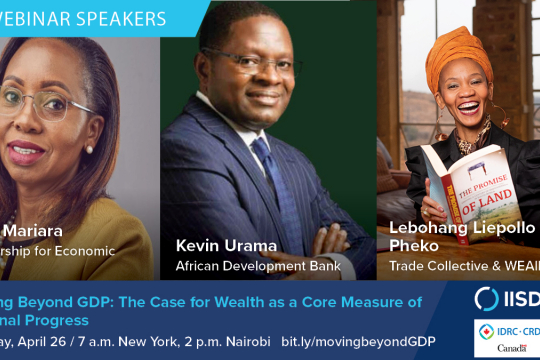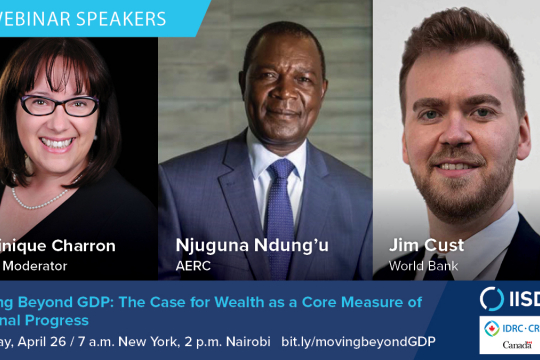For more than 70 years, GDP has been the most frequently cited and influential indicator of national progress. Yet GDP narrowly focuses on short-term economic growth while ignoring the costs of this growth, including environmental degradation, loss of societal trust, mounting debt, and growing inequality. Decision-making focused on GDP is biased toward short-term economic benefits, overly concerned about what happens in the market economy, and not concerned enough about the consequences of economic growth on other determinants of well-being-especially the environment and community.
But measuring wealth in the broad sense-considering human, natural, social, produced, and financial capital-would give countries new and important insights into the sustainability of their policies.
This seminar will explore the case for wealth as a core measure of national progress. Discussion will focus on the shortcomings of GDP, the benefits of using expanded wealth measures to guide decision-making, and the steps necessary for countries to embrace this new approach to ensure the sustainability of development.
Moderator
Dominque Charron, Vice-President, Programs and Partnerships, IDRC
Speakers
- Njuguna Ndung'u, Executive Director, African Economic Research Consortium (AERC)
- Jim Cust, Senior Economist, Office of the Chief Economist (Africa Region) - World Bank
- Kevin Urama, Acting Chief Economist and Vice President for the Economic Governance and Knowledge Management Complex, African Development Bank
- Jane Mariare, Executive Director, Partnership for Economic Policy
- Lebohang Liepollo Pheko, Senior Research Fellow at Trade Collective & Wellbeing Economy Alliance (WEAII) Ambassader
Interpretation in French and English will be available. Register here!

